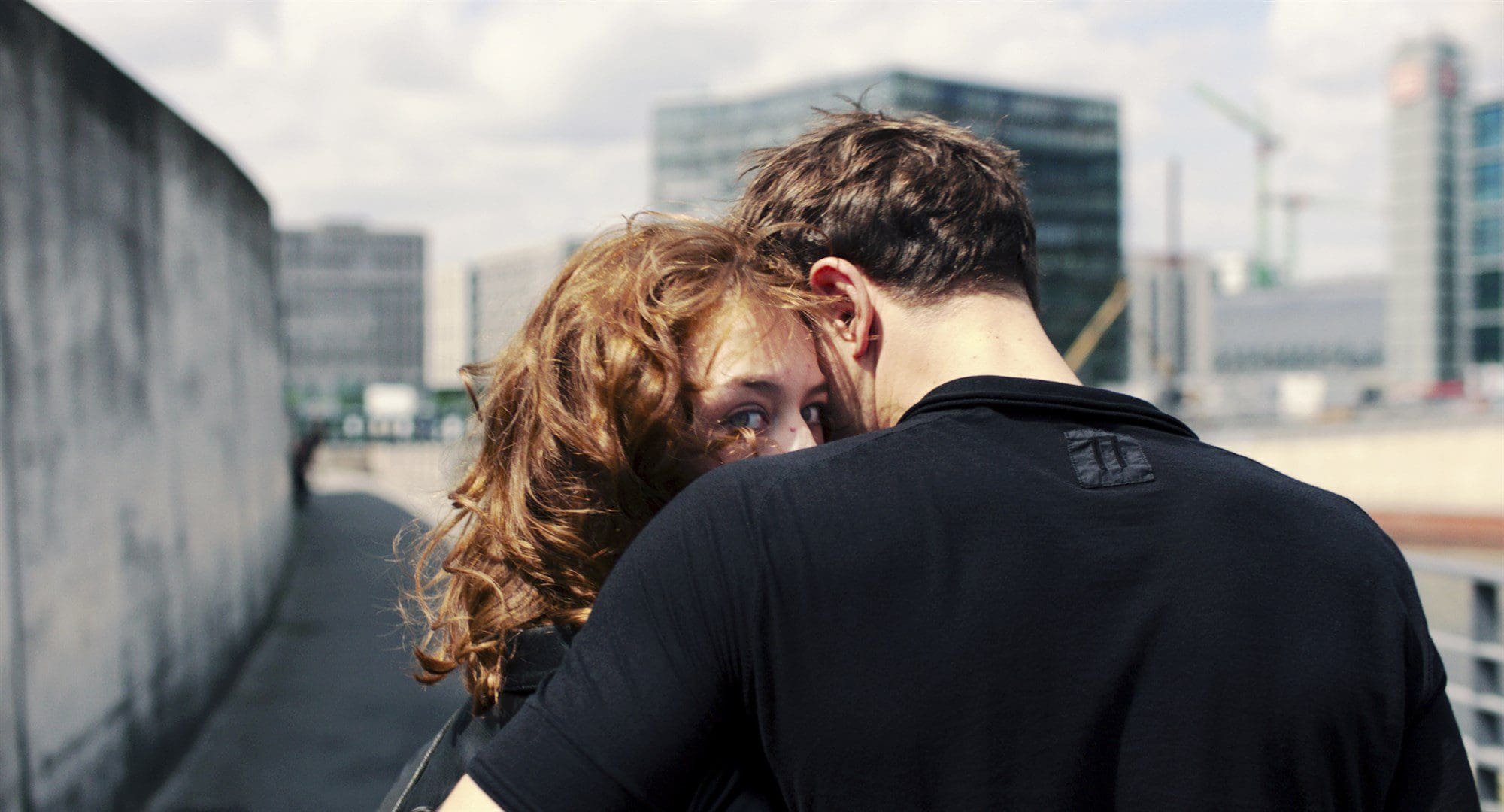
During the first few minutes of Undine, the titular character warns her lover that if he really goes through with their break-up, she’ll have to kill him. He doesn’t take her seriously and the audience usually wouldn’t either usually, but the film’s title is no coincidence. Indeed, the film is writer-director Christian Petzold’s modern retelling of the German fairytale by Friedrich de la Motte Fouqué, in which a water sprite earns her soul by falling in love with a knight only to later kill him with a kiss when he falls in love with another woman. While Petzold’s film retains much of that fantastic origin, it’s far more grounded in reality than the average fairytale—perhaps to its own detriment.
At first, it’s a little difficult to tell how much magic Petzold retains. This version of Undine (Paula Beer) is a tour guide in Berlin’s Urban Development and Housing department and her erstwhile knight, Johannes (Jacob Matschenz), is simply a married man callously ending their affair. Seedy, sure, but hardly magical. Things get even less fanciful as Undine is forced to rush off to work and we hear her give an extended talk about Berlin’s size and layout. It’s not until a few scenes later, when Undine meets Christoph (Franz Rogowski) that things start to feel a little otherworldly.
They first encounter each other in the same cafe where Johannes broke things off a few minutes earlier. Undine returns hoping to still find him there as she begged, but begins to panic, the sound of a nearby fish tank filling her ears, as she realizes he didn’t heed her warning. Suddenly, she hears the diver figurine in the tank call her name. Except it’s actually Christoph, his voice dulled as if she and we are hearing him from underwater. He explains he’s an industrial diver and he followed her out of the tour so he could speak to her alone. Before Undine can collect herself to respond, however, Christoph grows embarrassed and accidentally backs into the shelf holding the fish tank, knocking it over and drenching them both in the process. They land on the floor beside each other, gazing into each other’s eyes as if this is totally normal. It’s the kind of absurd meet-cute you’d expect to see in a rom-com, but it’s played straightforwardly here and after so much heavy emotion and realism, the moment can come off a little goofy.
That’s unfortunately often true of the moments where Petzold reintroduces fairytale elements into his more grounded take. A scene where Christoph encounters and seems to briefly commune with an elusive giant catfish in the waters of his latest job feels almost twee rather than hinting at something mysterious or mystical about the world. Likewise, some of Petzold’s filmmaking choices feel affected too, like the way he repeatedly abruptly cuts off the same Bach adagio nearly every time he uses it. The choice is meant to emphasize Undine’s emotional state, but it becomes less effective the more it’s used. Instead, the film’s most compelling magical element is the connection between Undine and Christoph.
Perhaps Undine’s most magical moment is also one that’s totally normal. After their somewhat disastrous meeting, Petzold immediately skips ahead in the couple’s courtship. As Undine stands looking out of a train window as it arrives at the station, Christoph suddenly appears framed within that window, running to keep up as the train slows so that he and Undine can continue smiling at each other. In that single moment, Petzold manages to convey how in love they already are and the film is at its best when it allows the actors to revel in both the joy, and eventually sadness, of the core story.
However, while Petzold eventually lets the fairytale elements take over, the film is overall so grounded in the realities of everyday life that it can feel like he’s over-correcting. Considering the film’s 86-minute runtime, long stretches of the film make the audience sit and listen as characters explain Berlin’s architectural history. Passages, like an extended run on the history of the Humboldt Forum, are certainly interesting and bolster the love story, but they mostly pull too much focus from the core characters and plot and their intellectual connection to the fairytale can be hard to grasp.
Though some viewers will find Undine leans too much on its fairytale origins, just as many are likely to feel the opposite. Still, Petzold’s thoughtful and melancholy take will connect with a lot of viewers. And for them, the film’s balance of fantastic and real will be just right.

